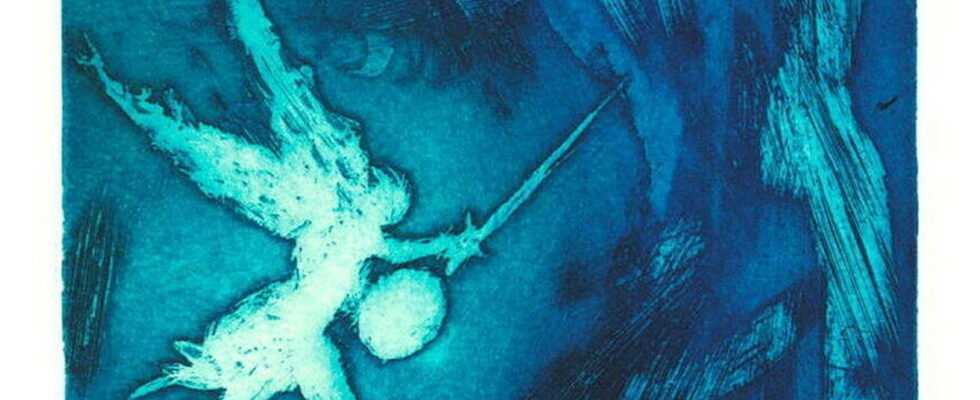” Lux in tenebris, angels and demons”, an intriguing but circumstantial theme for the Collège des Bernardins. This is the second opus of his Festival, after “Tempus fugit” in November.
“We chose these titles to force us to rethink the subject through the prism of Latin phrases which have a broader meaning than just words”, explains Pierre Korzilius, director of the art and culture center of the Collège des Bernardins. ” Lux in tenebris “, for example, is a phrase that expresses much more than just these three words, he adds. There is hope, despair, light and darkness, good and evil… And then Latin is also symbolic, because it is the language of the monks. »
Multidisciplinarity and mediation
These festivals are intended to be multidisciplinary. In order to claim to become a new opus, two conditions must be met: all areas of artistic expression must be represented and this must correspond to an idea that animates the Collège des Bernardins. “Angels and demons are a spiritual subject of the first order”, supports Pierre Korzilius.
To illustrate this theme at the crossroads of arts and philosophy, it will therefore be possible to discover in the majestic setting of the College both an exhibition of the painter and engraver Paul Kichilov with the participation of the writer Pauline de Préval; but also a round table, young children’s workshops or cinematographic projections… With, each time, “the desire for interaction with the public”, specifies Pierre Korzilius.
Have an exchange on the themes that drive usPeter Korzilius
For one of the two screenings, he chose a classic of this theme: The Exorcist. “We are going to try to give another reading of this film which is very interesting: a struggle between science and spirituality. I therefore asked Father Jean-Pascal Duloisy, head of the Exorcism service of the dioceses of Île-de-France to accompany the two screenings [Les Ailes du désir est aussi programmé, NDLR] to have this dialogue with the public, answer questions and have an exchange on the themes that drive us. »
READ ALSOWilliam Friedkin: “The Exorcist series has nothing to do with my film”
But what better than music to bring together the angels and demons who inspired her so much. On February 7, in the nave, Fanny Ardant as a narrator, the soprano Axelle Fanyo and the Secession Orchestra, under the direction of Clément Mao-Takacs, will tell the eternal story of the poor wretch who sells his soul to the devil, one of the 20th century masterpiecesand century: The Soldier’s Story by Igor Stravinsky. It will also be an opportunity to listen to the final song of the Symphony No. 4 by Mahler and another symphony No. 4, that of the Estonian composer Arvo Pärt, Los Angeles, commissioned by the orchestra of the same name when it was conducted by Gustavo Dudamel.
READ ALSOGustavo Dudamel, a superstar at the Paris Opera
The solo violin, a rather particular repertoire.Marina Chiche
Before that, on February 2, a Candlemas concert (with pancake tasting!) will focus on “the souls of the violin, between angel and demon”. A double meaning formulation, since the violins have their own soul: a piece of wood positioned between the bottom and the top of the violin.
“The violin is a bit Faustian, laughs violinist Marina Chiche, you have to make a pact with the devil to tame him. In the imagination, it is associated with the idea of virtuosity which is very early attached to something a little diabolical. It’s also an instrument that has the ability to arouse very strong emotions, sensuality… It was a little frowned upon, like something you couldn’t control and which caused emotional outbursts. »
The musician is delighted at the prospect of this violin recital, “a rather special repertoire that poses problems for composers, usually we hear the violin with other instruments. »
READ ALSOAnd if you integrated an orchestra in your living room?
Devilish virtuosity and angelic variations
On the program in particular for this intimate performance in the former sacristy of the College: two of the 24 whims of Paganini, “this great virtuoso who will maintain the myth that it is necessary to make a pact with the devil to succeed in mastering virtuosity” and the passacaglia “Guardian Angels” by Heinrich Ignaz Franz von Biber, extracts from Rosary Sonatas “masterful work of the baroque repertoire. »
“It’s exciting to make these two works resonate,” enthuses Marina Chiche. In this program, what is demonic is virtuosity, velocity, very high registers or virtuoso gestures… This diabolical side of a mastery beyond earthly constraints. And the angelic side is embodied by a dimension of contemplation and meditation in this form of the passacaglia. There is both this gravity and this gravitation of the four notes of the stubborn bass, this human condition which is nailed to the ground, and the variations of the melody which tries to fly away. It is a verticality that is musically embodied, music is like an access to prayer to the guardian angel. »
Festival des Bernardins, Opus 2, which takes place from January 25 to February 8.
